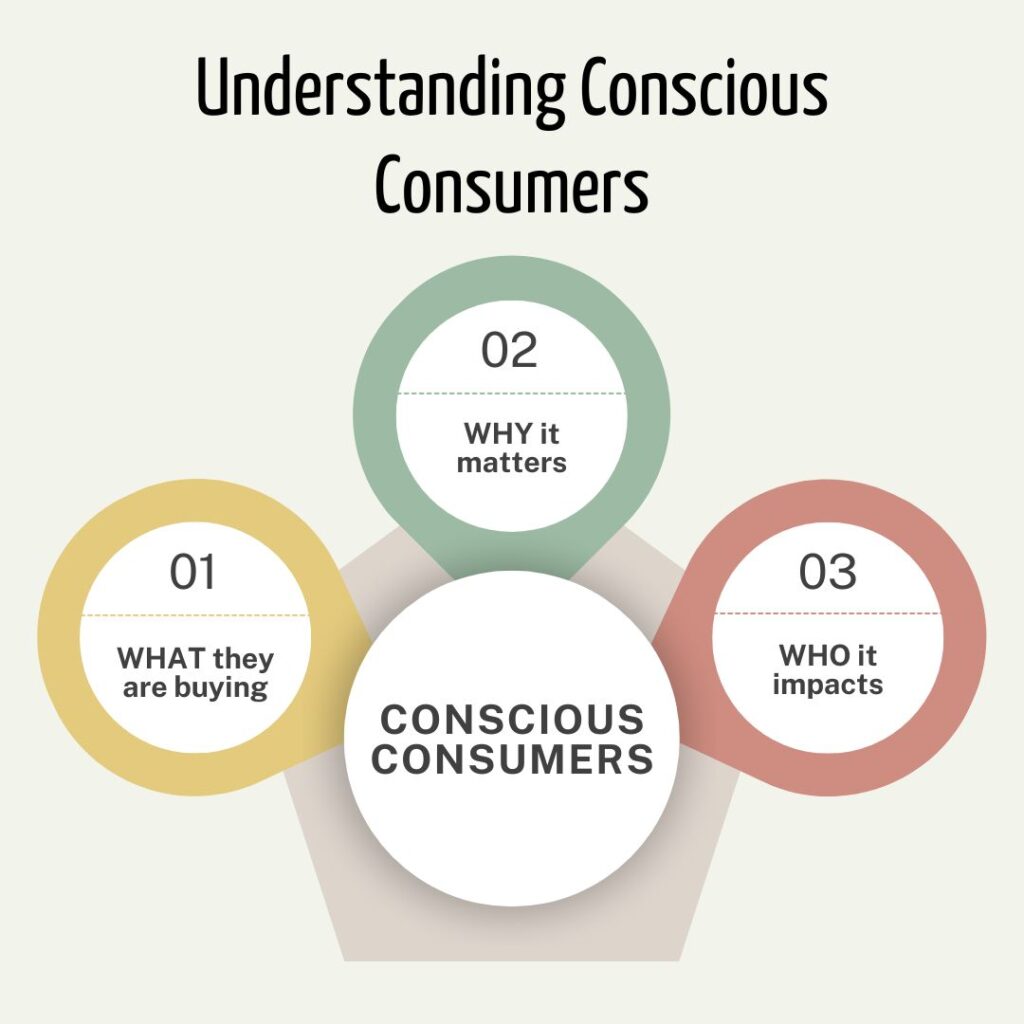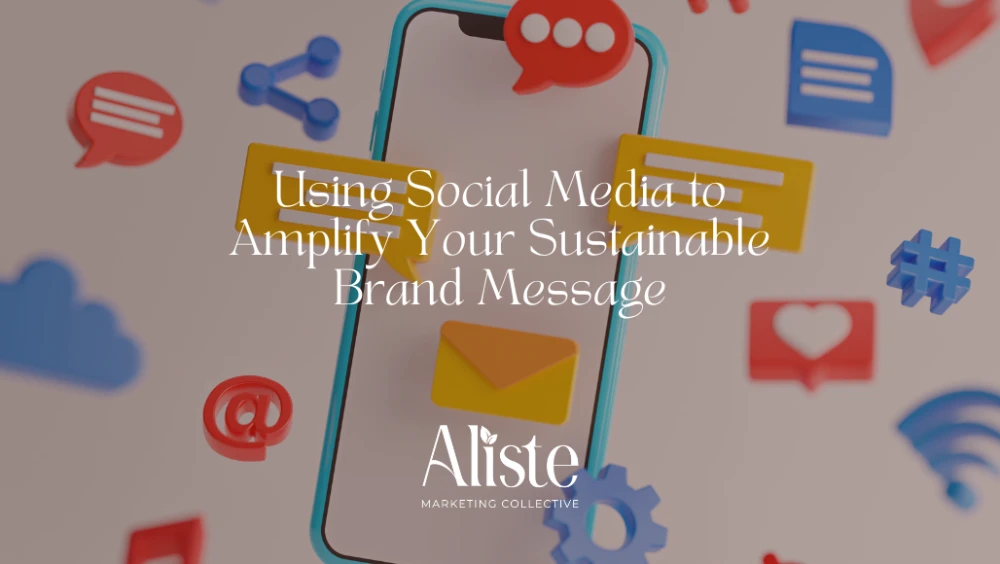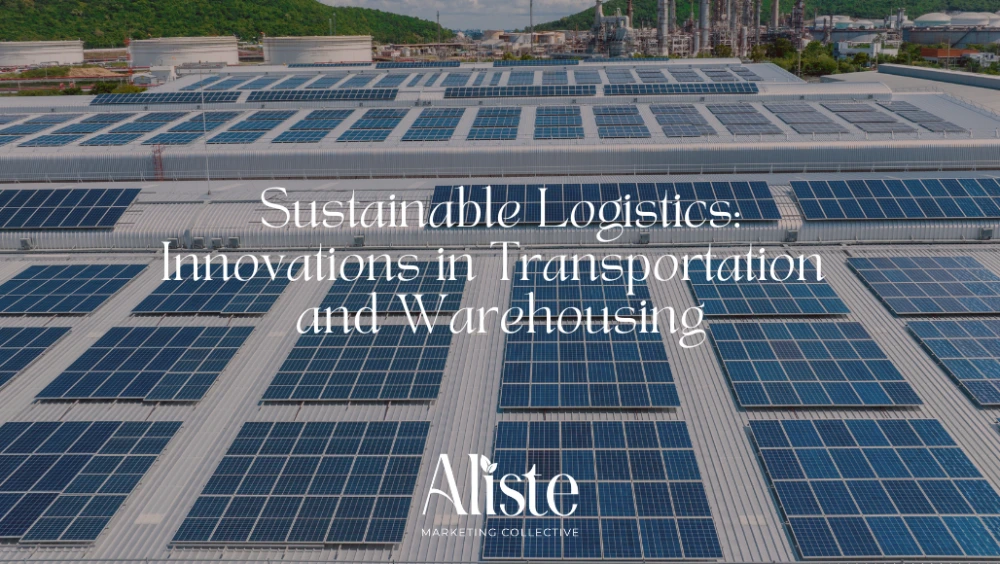Remember when marketing was all about bright colors, catchy jingles, and selling dreams? Those days were when “eco-friendly” meant sticking a green leaf on packaging, knowing nobody cared enough to look too closely. News flash: The world is so over those tricks.
We’re in the era of conscious consumerism. People are asking questions, digging deep, and holding brands accountable! This shift puts transparency and traceability under the spotlight. Who’s getting the customers and earning trust? Brands that have the guts to be open about their products and impact.
Let’s explore how the two values build a profitable and principled business.
Understanding Conscious Consumers
Conscious consumerism isn’t a new concept. If you’ve just heard about it, your brand already has a lot of catching up to do. In fact, a study back in 2022 found that 66% of consumers have “sustainability” as one of their top five drivers in every purchase decision. Years later, these eco-conscious buyers are, without a doubt, no longer a fringe group but the mainstream.
Characteristics

The conscious consumers are shaking up the marketplace! Who are they? They are mindful shoppers who are values-first, mission-driven, and deeply intentional about where their dollars go. These consumers want to know what they’re buying, why it matters, and who it impacts.
Conscious consumers have environmental awareness, always going for products with sustainable packaging and low ecological footprints. Health and organic options? Add to cart! Moreover, these consumers consider fair labor practices, cruelty-free certifications, and ethical sourcing non-negotiables — they’re serious.
Expectations and Influence in Reputation and Loyalty
Conscious consumers expect nothing less than honest storytelling, open communication, and commitment. If you want to win their loyalty, transparency and traceability are your golden tickets.
Why should your brand care about mindful shoppers? Well, these individuals don’t just buy; they believe. They become customers and ambassadors when they find a brand that aligns with their values. These consumers will still be discerning, of course, and once you earn their trust, you must sustain it.
Trust turns first-time buyers into lifelong fans and drives word-of-mouth. Transparency and traceability are a long-game investment in reputation and loyalty that paid ads can’t even come close to.
The Role of Transparency in Business
In the business world, transparency means sharing details with your audience. You tell them the good, the messy, and the work-in-progress, giving them a clear view of your practices, results, and direction. Here’s what that looks like in action:
-
- Clear Communication of Brand Values: Say you care about the planet and show how that shapes your products, partners, and operations.
-
- Honest Labeling and Product Information: Consumers deserve to know exactly what’s in your product and how it got to them. Eco-conscious marketing means no greenwashing and fine print!
-
- Open Dialogue with Customers: Transparency is a two-way street; encourage feedback, respond honestly, and don’t be scared to evolve.
Implementing Traceability in Supply Chains
If transparency is the “what,” traceability is the “how.” Traceability hands you the tools and systems to follow every ingredient, material, and product from point A to Z. Today’s tools are smarter than ever, bringing QR Codes, RFID and NFC Tags, IoT Sensors, and blockchain technology into your reach.
Benefits
Traceability and transparency unlock real advantages. Businesses get to reduce waste as they catch inefficiencies before they become liabilities. You also know exactly how much you’re using and ditch the “just in case” overstocking!
As for the customers, they can expect accurate, on-time delivery. With the possibility of measuring carbon footprint, they confirm the impact with real data. Ultimately, they’ll be satisfied. And isn’t that every business’s goal?
Challenges and Solutions
Warning: Traceability isn’t a walk in the park, but fortunately, the right strategies will make it less of a hurdle. Take these challenges and solutions for your reference.
Data Accuracy
Manual errors, outdated systems, and inconsistent data across platforms are roadblocks. Overcome them by automating with IoT, blockchain, and AI-driven tools that update in real time.
Integration Issues
Multiple partners using fragmented systems? Integration nightmares! Use cloud-based platforms and standardized APIs instead.
Lack of Standardization
Without a universal language in your supply chain, chaos and confusion reign. Adopt industry standards for uniform data protocols.
Visibility Gaps
You don’t want partial views and missing links in your supply chain. Start with your business goals and implement risk management frameworks.
Cost
High upfront investment in tech, training, and systems is a real barrier. You can start small with scalable solutions, explore subsidies, and collaborate with partners to share expenses.
Regulatory Compliance
Rules and region-specific requirements constantly change. Keep up through automated compliance tracking tools and legal advisors.
Strategies for Enhancing Transparency and Traceability
When leveling up your eco-conscious marketing through transparency and traceability, how sure are you that you’re nailing it, not failing it?
Keep your processes sharp and your data on the mark by conducting regular audits. Let third-party auditors hop on board to add credibility and objectivity to your claims! Lastly, showcase your initiatives using digital platforms for public dashboards, reports, and consumer-facing tools.
Friendly reminder: It’s never a one-time event but a continuous effort!
Case Studies: Brands Leading in Transparency and Traceability
Let’s acknowledge the real ones doing eco-conscious marketing right. Here are two brands that will inspire you.
Patagonia
Patagonia’s “Footprint Chronicles” offers a behind-the-scenes look at their products, from raw materials to distribution. This level of transparency has won awards and hearts! The brand’s radical honesty has definitely become a blueprint for conscious branding.
Tiffany & Co.
Luxury jewelry as a sustainability leader? A little unthinkable. But Tiffany & Co. has raised the bar. Over 98% of the company’s precious metals are from responsible mines or recyclers, and their diamond traceability ensures ethical sourcing under the Kimberley Process. Luxury with a conscience, indeed.
Patagonia, Tiffany & Co., and other sustainable brands teach us that transparency and traceability don’t water down your brand. It doesn’t matter if you’re selling outdoor gear or high-end gems; being real with your buyers pays off.
Measuring the Impact of Transparency and Traceability
Saying your brand is transparent is one thing and proving that your efforts are working is another. You can’t manage what you don’t measure! Here are three ways to track your impact:
-
- Consumer Trust and Loyalty Metrics: Trust is the ultimate currency, and transparency builds it brick by brick. Check retention and repeat purchase rates to see if people are banking on or ditching you.
-
- Brand Reputation and Social Feedback: Hear the digital chatter! Read online reviews, study social media sentiments, and get results from surveys and polls. It’s the people who will label you as a leader in conscious consumerism.
-
- Strategy Refinement Through Data: All the letters and numbers tell you something. Use your data to identify weak points, double down on what’s working, and adjust your plans.
Overcoming Challenges and Leveraging Opportunities
The stakes and rewards are high with conscious consumers. Whenever there’s skepticism and mistrust, show your receipts and share the journey. Realness beats perfection every time!
Capitalize on the competitive advantage of transparency, too. Make it part of your eco-conscious marketing not just to earn but to differentiate, inspire, and lead. And for continuous improvement, count on collaboration to make it happen. Let the suppliers, auditors, tech partners, and, yes, your buyers, ride with you.
Eco-Conscious Marketing for Conscious Consumerism
With conscious consumerism as the standard, the brands that prioritize honesty, responsibility, and clarity take the honor. Weave transparency and traceability into your business, and you’ll reel in buyers, believers, and profit like you never thought possible. And that marketing is the kind of marketing that changes the world!
Ready to build trust with conscious consumers through transparency and traceability? Aliste Marketing specializes in helping purpose-driven brands develop and communicate authentic, transparent strategies that resonate with environmentally and socially aware audiences. Contact us today to explore how we can help your brand shine with integrity and impact.
Sources:



